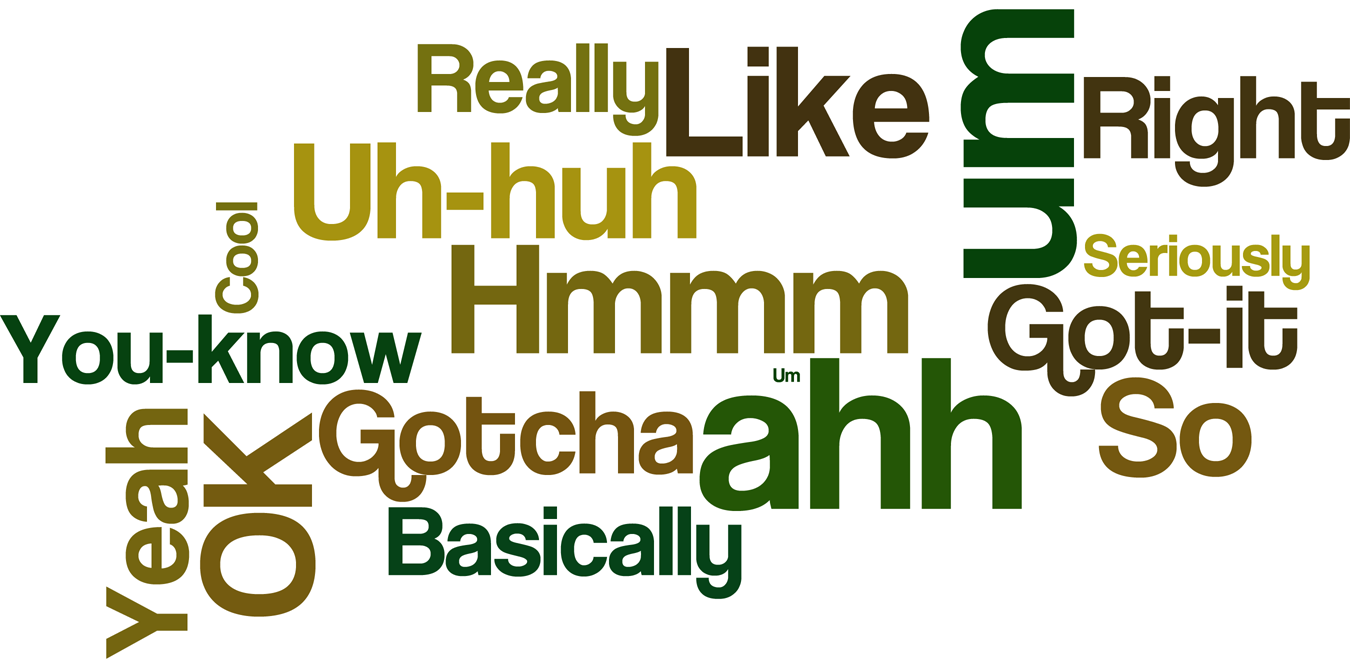

It might be used to ease the tension in a conversation, to ask a rhetorical question, to seek the agreement of your listener, or to even (ironically enough) politely disagree with your listener. Right is a very common verbal tick that people use to start or end their sentences. “She's very inspiring to me, you know, because she spent 40 weeks just researching the book.” Right “I think politics are confusing, you know?” You know can be used as a rhetorical question, in order to fill space in a sentence, or just because simply out of habit as a verbal tick. “Like, the podcast is great but I don’t know, like, if I should be a guest for them or not.” You Know
FILLER WORDS MOVIE
It technically means “such as” or “similar to” (ex: “This movie is like Star Wars”) but it is often used as a filler word that can be removed from the sentence without changing its meaning (ex: “Like, I don’t know if I want to go to that school”). Like is one of the more confusing filler words.


“Have you seen the movie? Err, I don’t think I want to go see it, it looks too scary for me.” Like It’s very similar to um/uh/ah, but it indicates a stronger concern or negative energy. “To err is human,” and so is saying "er." "Er" is a word that indicates hesitation, doubt, concern, or potentially even alarm. “Hey, um, have you heard about the new story, uh, they’re pitching to Sarah?” Er In essence, these words mean either “I’m still thinking or “Please give me more time.” But they can also be used to help tell people that you are still talking and want to finish your thought (if used between 2 sentences). "Um, "uh," and "ah," are grouped as one example because these words can be used interchangeably. For example, you might say, “So, have you heard, um, about what they said about you in that Tweet?” To Ease the Tension in a Conversation: Whenever we have to confront our friend, speak about a delicate subject, or say something awkward it’s natural to lean on filler words or verbal ticks to ease the tension.

A well-placed "um" can tell your listener that you are gathering your thoughts and that they should wait for you to finish speaking before they interject. To Show That We’re Still Thinking: "Ums" and "ahs" are not all useless. In other words, we use them because we"re not thinking about it. These words are so common that it's easy to start using them and build a habit of dependency on the words in our everyday life. Americans are particularly used to hearing "um", "uh," and "like" at home, at school, and work, and in the media (TV, YouTube, podcasts, etc). Out of Habit: We're all heavily influenced by the world surrounding us. There are several different reasons (both good and bad) that people use filler words.


 0 kommentar(er)
0 kommentar(er)
